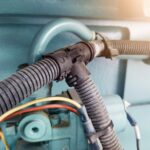
In the world of wire harness assembly, productivity is the key to success. This introduction sets the stage for a journey through proven methods that maximize productivity. In this blog, we discuss step-by-step wire harness assembly proven methods for achieving maximum productivity in assembling processes.
Understanding the intricacies of wire harness assembly is essential before diving into optimization. This section provides a brief background, emphasizing the importance of efficiency in this critical process.
Efficiency begins with a deep understanding of wire harness components. Explore complexities of wires, connectors, and terminals to optimize your assembly process.
Furnish yourself with the right devices. Find out about the fundamental wire strippers, crimping tools, and testing equipment that streamline your workflow and enhance efficiency
Efficiency starts with a good planning. Discover effective planning strategies to organize tasks, manage time, and streamline the overall assembly process.
Master the art of precise wire stripping and cutting. Learn techniques that not only save time but also contribute to the overall efficiency of your wire harness assembly.
Crimping is a crucial step. Understand different crimping techniques and tools to achieve precise and reliable connections, enhancing the overall efficiency of your assembly.
Properly securing and routing wires is key to a neat and efficient assembly. Explore techniques to ensure organized and optimized wire layouts.
In few cases, soldering can be more effective than crimping. Evaluate the pros and cons to pursue informed choices and optimize your assembly process.
Durability of your wire harness can be enhanced through overmolding. We need to discover techniques to add an extra layer of protection, contributing to long-term efficiency.
Efficient tying and bundling of wires not only improve aesthetics but also contribute to the overall efficiency of the assembly. Learn methods to achieve neat and organized wire bundles.
Don’t wait until the end for testing. Incorporate testing early in the assembly process to identify issues swiftly, reducing the overall time spent on inspections.
Prioritize performance testing to guarantee the reliability of your wire harnesses. Swift and thorough testing measures contribute to long-term efficiency.
Efficiency includes meeting industry standards. Understand the relevant standards and certifications, ensuring your assemblies align with industry benchmarks.
The automotive industry demands efficiency without compromising precision. Explore strategies to meet tight schedules and ensure efficient wire harness assembly.
Aerospace applications require speed and precision. Learn how to balance both aspects to achieve excellence in wire harness assembly for aerospace industries.
Efficiency in medical equipment wire harness assembly is about balancing speed and safety. Understand the specific requirements and achieve optimal efficiency.
Optimize efficiency with an energy effective way. You need to find materials that add to maintainability as well as improve the general productivity of your assembly.
Waste devaluation Strategies for Continuous Flow
Minimizing waste is a key aspect of long-term efficiency. Discover strategies for waste reduction that maintain a continuous and streamlined flow in your assembly processes.
Future Trends: Sustainability and Productivity
Stay ahead by exploring future trends that merge sustainability with productivity in wire harness assembly. Embrace innovations that contribute to efficient and eco-friendly practices.
In conclusion, upgrading proficiency in wire harness assembly is a consistent journey. By grasping fundamental parts, embracing demonstrated procedures, and remaining versatile for industry transformations, you can enhance your cycles for a more effective and streamlined assembly.
1. How long does it take to become proficient in wire harness assembly?
Becoming proficient varies, but consistent practice and learning can expedite the process.
2. Are there specific certifications for wire harness assembly?
Yes, several certifications validate proficiency, such as IPC/WHMA-A-620.
3. What are the common challenges in wire harness assembly?
Challenges include ensuring precise connections, troubleshooting faults, and meeting industry standards.
4. How can I stay updated on the latest advancements in wire harness technology?
Regularly reading industry publications, attending workshops, and networking can keep you informed.
5. Is automation replacing manual wire harness assembly?
While automation is increasing, manual assembly skills remain crucial for complex tasks.